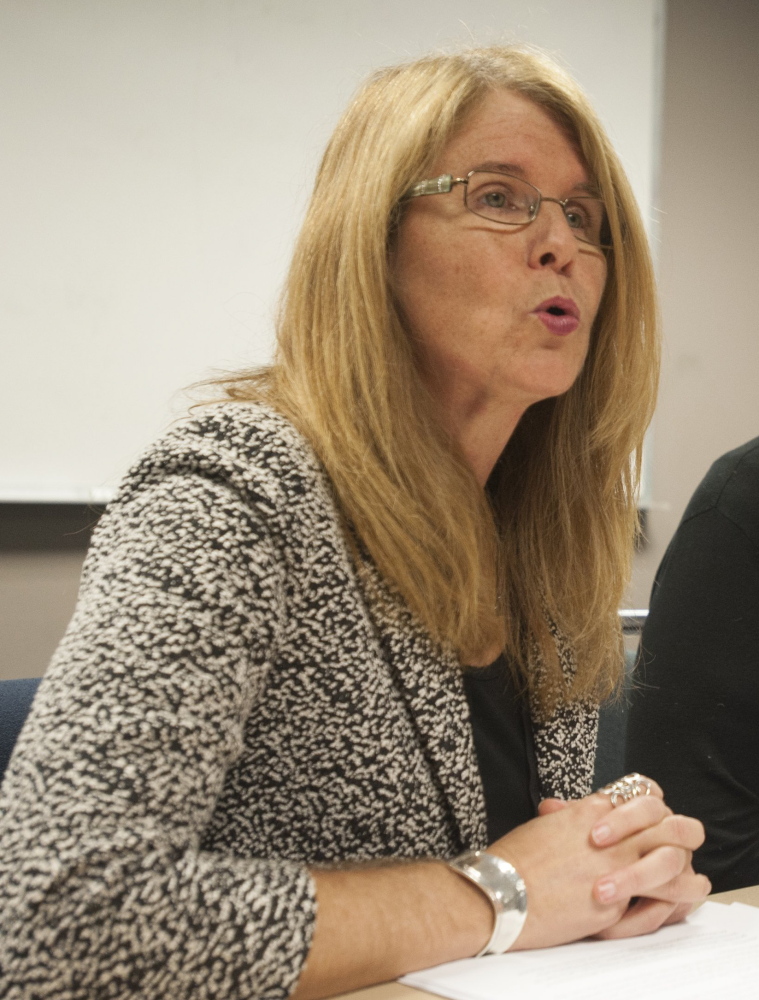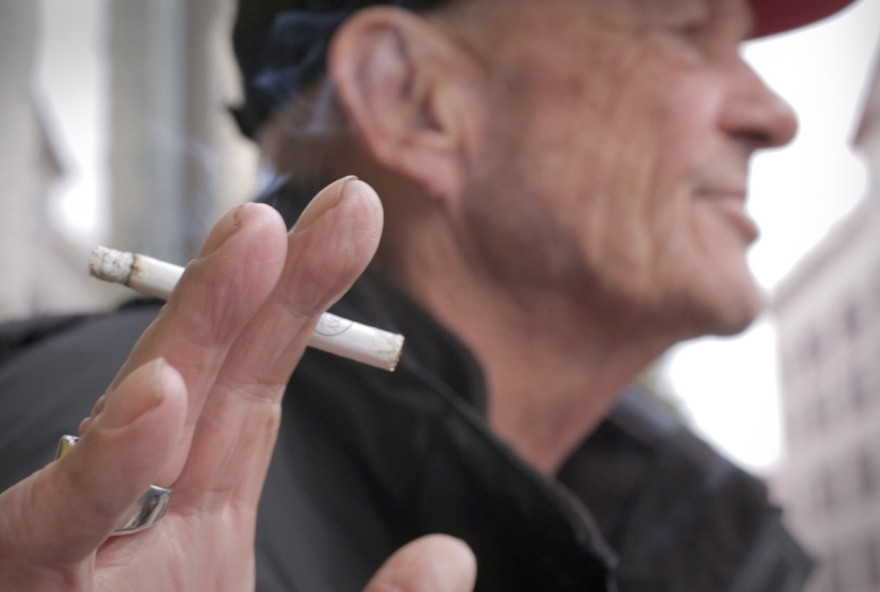AUGUSTA — Health care advocates packed a State House hearing Monday to protest Gov. Paul LePage’s proposal to take $10 million a year in tobacco settlement money from the Fund for a Healthy Maine and shift it to primary care doctors.
While the Fund for a Healthy Maine pays for several public health efforts – including anti-obesity, substance abuse and child care – critics said LePage’s plan would have a particularly devastating effect on anti-smoking programs.
Representing the American Lung Association, MaineHealth, the Maine Public Health Association and other prominent health industry backers, Healthy Maine supporters held a news conference and testified at a public hearing before the Legislature’s appropriations and health and human services committees.
LePage’s 2016-18 biennial state budget would redirect $10 million a year from the Fund for a Healthy Maine to maintain reimbursement rates for primary care physicians under MaineCare, the state’s version of the federal Medicaid program. Federal reimbursement rates are scheduled to decline next year for many MaineCare physicians under a sunset provision in the Affordable Care Act, but the administration’s budget proposes keeping the rates steady by tapping into Healthy Maine.
But health care advocates say the budget sets up a “false choice,” and they accuse the state of raiding Healthy Maine, which is funded from the 1998 settlement with tobacco companies.
“The two issues are minimally connected,” said Dr. Stephen DiGiovanni, a pediatrician at Maine Medical Center’s outpatient clinics. “You need a smoking cessation and prevention message coming from a variety of different sources, from parents, the schools, at parks, where you live, not just from your doctor.”
MAYHEW: NEW APPROACH NEEDED
But Mary Mayhew, commissioner of the Department of Health and Human Services, said the Healthy Maine programs have not worked to deter smoking. She said that Maine has spent the seventh highest amount nationally on tobacco control and prevention programs since 1993, yet its smoking rate among adults stands at 19 percent – only 1 percent lower than the national average.
“We have to try a different approach,” said Mayhew, noting that MaineCare patients are more likely to be smokers than those with private insurance.
But adult smoking in Maine has declined from 29 percent to 19 percent since 1997, according to the Partnership for a Tobacco-Free Maine, and Healthy Maine advocates say youth smoking has been cut in half since the early 2000s in response to a variety of strategies, including grass-roots education, targeted advertising in schools and other locations and campaigns to ban smoking in public buildings and parks.
Mayhew maintains that concentrating anti-tobacco efforts at the primary care level will reap benefits.
“We are absolutely supporting an individualized approach to the funds. We believe early screening, identification and prevention with a primary care provider is going to have a significant impact,” she said.
There would be no specific state effort to promote anti-smoking messages at doctor’s offices, but reimbursing primary care doctors at reasonable rates would give physicians the time with patients to develop such strategies, DHHS spokesman David Sorensen said.
“Several studies have shown that anti-smoking intervention is one of the most effective things primary care providers do,” he said in a statement.
SCHOOL CLINICS COULD FEEL PINCH
Maine has spent roughly $12 million annually on smoking cessation and prevention in recent years, according to state budget figures. The proposed $10 million-per-year cut from Fund for a Healthy Maine includes a $4 million annual reduction in direct anti-smoking programs, as well as cutbacks in others that have anti-smoking components.
DiGiovanni, the MMC pediatrician, said the school clinics – which are partially supported by Healthy Maine money – would be particularly affected. They not only provide anti-smoking messages, he said, but they also bring primary care to students.
“It would be a catastrophe if those went away,” he said. “It’s like having a mini primary care clinic inside each school. They are very effective.”
Several high school students testified that the school clinics have helped them recover from various ailments.
Maine receives about $50 million per year in tobacco settlement money, although more than half of that is spent on a number of health initiatives – such as anti-obesity and substance abuse programs – or diverted to other government spending unrelated to health care.
Ed Miller, senior vice president of public policy for the Northeast region of the American Lung Association, said Maine has shifted resources away from anti-tobacco programs since 2010, but LePage’s latest proposal would decimate the efforts.
“This would gut what’s left of the whole smoking cessation infrastructure. It would essentially end the program,” said Miller, who is proposing an increase in Maine’s $2 per pack cigarette tax to preserve the Healthy Maine fund.
Send questions/comments to the editors.





Success. Please wait for the page to reload. If the page does not reload within 5 seconds, please refresh the page.
Enter your email and password to access comments.
Hi, to comment on stories you must . This profile is in addition to your subscription and website login.
Already have a commenting profile? .
Invalid username/password.
Please check your email to confirm and complete your registration.
Only subscribers are eligible to post comments. Please subscribe or login first for digital access. Here’s why.
Use the form below to reset your password. When you've submitted your account email, we will send an email with a reset code.